The world has been reborn.
Last month’s release of DC Universe: Rebirth #1 kicked off a new era of storytelling for the publisher. The house that gave us Batman and Superman is looking to make up for the mistakes of the New 52 canonical reboot, reinstating old plot points that were erased from their timeline and even bringing back old versions of classic characters that had been discarded in favor of newer, “edgier” ones.
Rebirth #1 promised us character driven stories filled with more heart than fist. Can they deliver? Each week, Kyle Pinion and Alex Lu will dig into the Rebirth titles kicking off DC Comics’ line overhaul to find out. This is week four of DC Reborn.
Note: the reviews below contain **spoilers**. You’ll find our buy/pass recommendation for this book near the bottom of the article, so if you’re looking for a quick guide before heading out to the store, you’ll find it there!
Previous Reviews:
Week One— BATMAN:REBIRTH, GREEN ARROW: REBIRTH, SUPERMAN: REBIRTH, and GREEN LANTERNS: REBIRTH
Week Three— BATMAN #1, GREEN ARROW #1, GREEN LANTERNS #1, SUPERMAN #1, TITANS: REBIRTH
 Wonder Woman #1
Wonder Woman #1
Writer: Greg Rucka Artist: Liam Sharp
Colors: Laura Martin Letters: Jodi Wynne
Alex Lu: So I’m just going to be completely upfront and lead off with a controversial statement: I did not love Wonder Woman #1.
In Wonder Woman: Rebirth #1, Greg Rucka was tasked with the unenviable assignment of reconciling the many disparate takes on Diana Prince that have been told over the years. Rucka took the task in stride, crafting a story that is as much about the real-world history of Wonder Woman as it is about the fictional character herself. Diana discovers someone has manipulated her past and she intends to find out who it was.
Having been told to read Lazarus by multitudes of people who say it’s one of the best comics ever and failing to get past the second volume, I’d say that Rucka and I do not really see eye to eye on storytelling. With that in mind, when I say that I did not love Wonder Woman #1, I don’t mean to say that it’s a bad book. It’s actually a very beautiful one– Liam Sharp impressed me in his pages of Wonder Woman: Rebirth #1 and he continues to do so here, rendering the world Diana has entered as one of sublime natural beauty. The script itself is masterfully done as well. The groundwork for Diana’s quest is laid out cryptically yet clearly and the B-story featuring Diana’s former lover Steve and his military commander Etta Candy seems to have some decent forward momentum as well. Even the cliffhanger for this issue was solid, although the weight of the reveal is lost on those who have not followed Wonder Woman stories in the past.
Ultimately, my distaste for this book comes from the same place my distaste for Lazarus comes from: Rucka’s languid pacing. Rucka books don’t run. They don’t walk. They crawl. They are beautiful and measured crawls, but the plodding pace at which this book moves means that one could potentially follow Wonder Woman for years before reaching some form of narrative catharsis. Much to my own loss, I know, that wait is just too long for me.
Kyle, you can now bash me over the head.
Kyle Pinion: I mean, if we weren’t separated by about a eight-hundred miles, or whatever the distance is between Atlanta and New York, I just might! All kidding aside, this was easily the best written comic of the week. Granted, the competition wasn’t exactly stiff, but there’s a wide gulf between someone with Rucka’s confident, concise storytelling and well…some of the other books we read. I love how much space he gives Liam Sharp to work with, and just how purposeful his language is here. I’m not a die hard Rucka guy, and dropped off Lazarus a few months back (though I’ve been tempted to get back on board for some time and this might give me my impetus), but he knows how to craft a scene and establish a sense of character in a way that comes rarer than I’d like in mainstream comics.
Looking at both of the slowly converging plots, I adored the isolation of Wonder Woman’s side of the tale. To be honest, I would have been satisfied if those pages were silent, but the way the warnings are laid out provides a sense of rising threat from Diana, belying her peaceful, loving nature, and does it without relying on a specific action that needs to show viciousness in any way, at least until her hand is finally forced. Rucka is able slip back into this character like a comfortable shoe, and reminds me just how much he was missed. This is also where Laura Martin’s coloring worked its magic on me, continuing to utilize the brown and orange tones that just scream “mythological narrative” and fully envelop you in the mysterious environs that Diana finds herself delving deeper into.
As for the other end of the book, I’m terribly excited to have Steve Trevor back in an active role in a Wonder Woman comic and not somehow directly tied to the Justice League, or playing some larger role beyond being the key male companion to Diana. His interplay with Etta Candy, who makes her best rebooted universe appearance yet, is another highlight. I see myself getting quite a bit of joy out of the Steve-Etta friendship going forward, and restoring all of these classic elements brings a bit of joy into my heart. I was a little mixed after the Rebirth issue, which felt like it was cutting out just as it was getting warmed up, but this issue has me fully confident that my faith is being rewarded.
I’m also really into Liam Sharp, as I said last week. His sensibilities here bring just a tad of that Heavy Metal background that I think works like a charm for the monsters and war-zone elements. Basically, this was a comic where Rucka, Sharp, Martin and Wynne basically made “the ultimate Kyle cat-nip”, I never stood a chance.
Alex: I think that this is, once again, a place where my relative newness to comics is not something that is being rewarded. I know that the prevailing culture, particularly at DC and even more so during Rebirth, is to cater to established fans rather than those whose roots are not as entrenched in DC history, but I feel particularly estranged from Rucka’s Wonder Woman. I have only the most fleeting familiarity with Steve and none with Etta, so their presence is totally nondescript to me. I can only describe it in my mind as “soldier things” with a tinge of romance on Steve’s part.
I think this lack of grounding is particularly problematic because Diana’s conflict is so abstract. What I was missing in Wonder Woman: Rebirth #1 was an adversary of some sort for Diana to tackle. I hoped she would find that opponent here, but it seems not. She’s forced to deal with Cheetah’s minions before she can even speak to her long-time rival for a chance to speak to said rival’s goddess, who may show Diana the way to her true enemy. It’s hard to really root for a character you’re not totally familiar with when you have no idea what they’re facing.
Rucka’s Wonder Woman #1 reminds me of foie gras. I know it’s well made and it looks very good, but my palate is not developed enough to appreciate it. If I were to decide to dive deeper and gather the requisite background knowledge needed to understand this story, where should I begin, Kyle? There are the obvious sources like Brian Azzarrello’s and Cliff Chiang’s run or Grant Morrison’s and Yanick Paquette’s Wonder Woman: Earth One, but what about stuff more off the beaten trail?
Kyle: That’s a hard question to answer at this point, because as far as in-story continuity goes, only the Azzarello and Chiang run is what informs this version of the character, at least so far. If Rucka were to restore some of the aspects of his own run, then I might find that easier to recommend for actual story considerations, but based on his own words, none of that is really necessary. Now, if you want to read some past takes, DC is about to reprint that aforementioned previous go by Rucka in its entirety starting off with an upcoming collection this year, which I do recommend. I also might give a shout-out to the Phil Jimenez run, which I think is woefully underappreciated. Some folks are also big fans of the work Gail Simone did just ahead of the JMS jacket and pants era. And hey, you can’t ever go wrong with the Marston originals, where some argue that it’s the lone Golden Age set of comics that have yet to be surpassed by anything that came after.
Anyway, hooray Greg Rucka! Alex is wrong, this book is great!
Alex: I never said it wasn’t! I just said I’m too ignorant to properly appreciate it at this time. Please stay on the line and hold while I read more things!


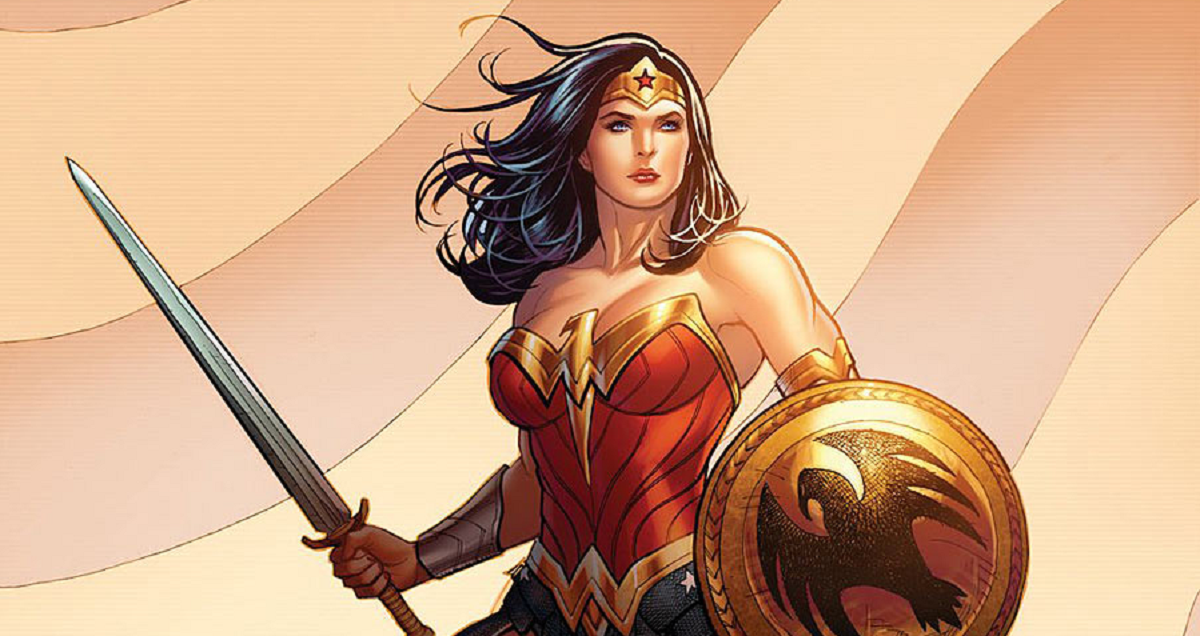
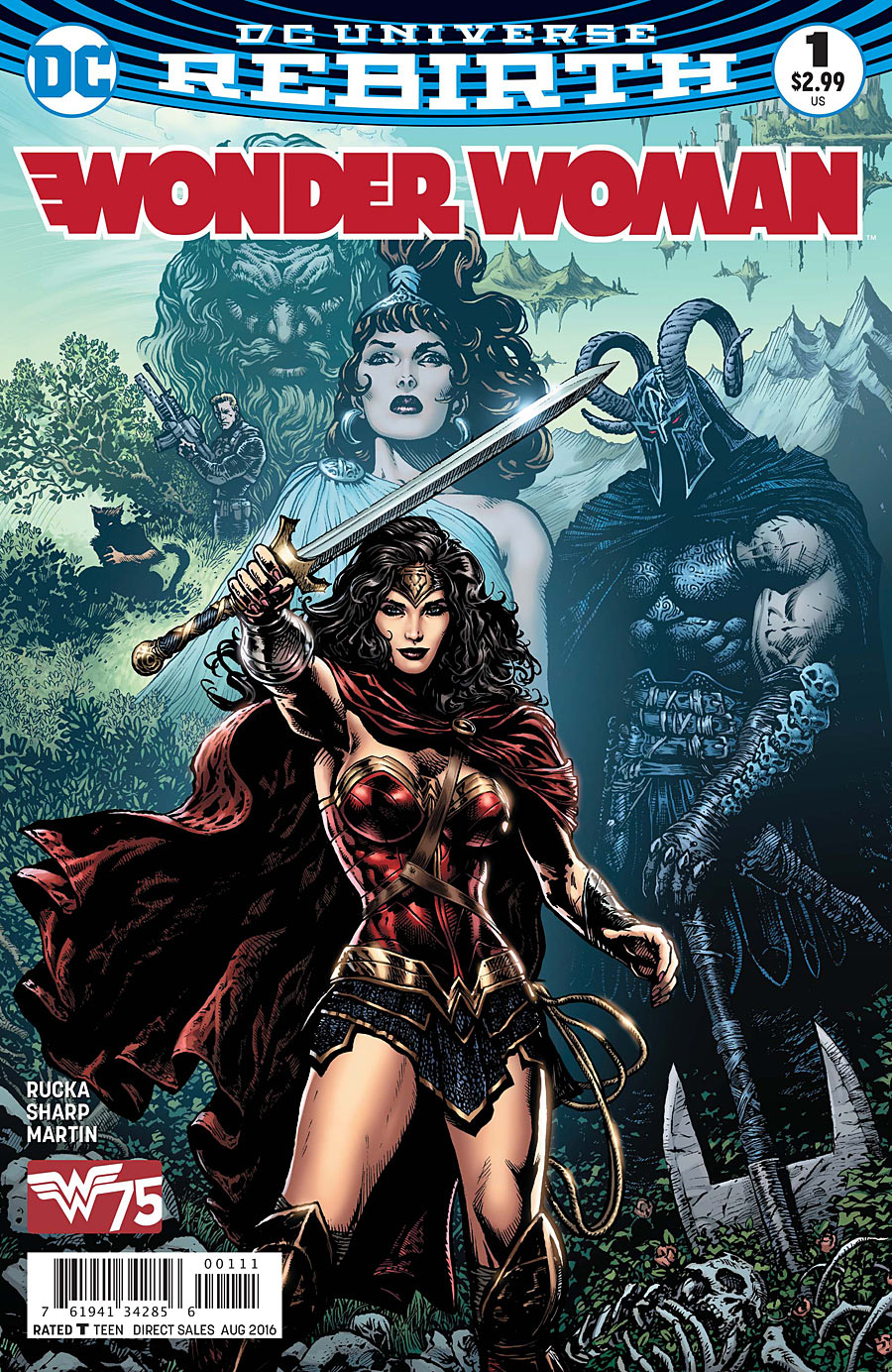 Wonder Woman #1
Wonder Woman #1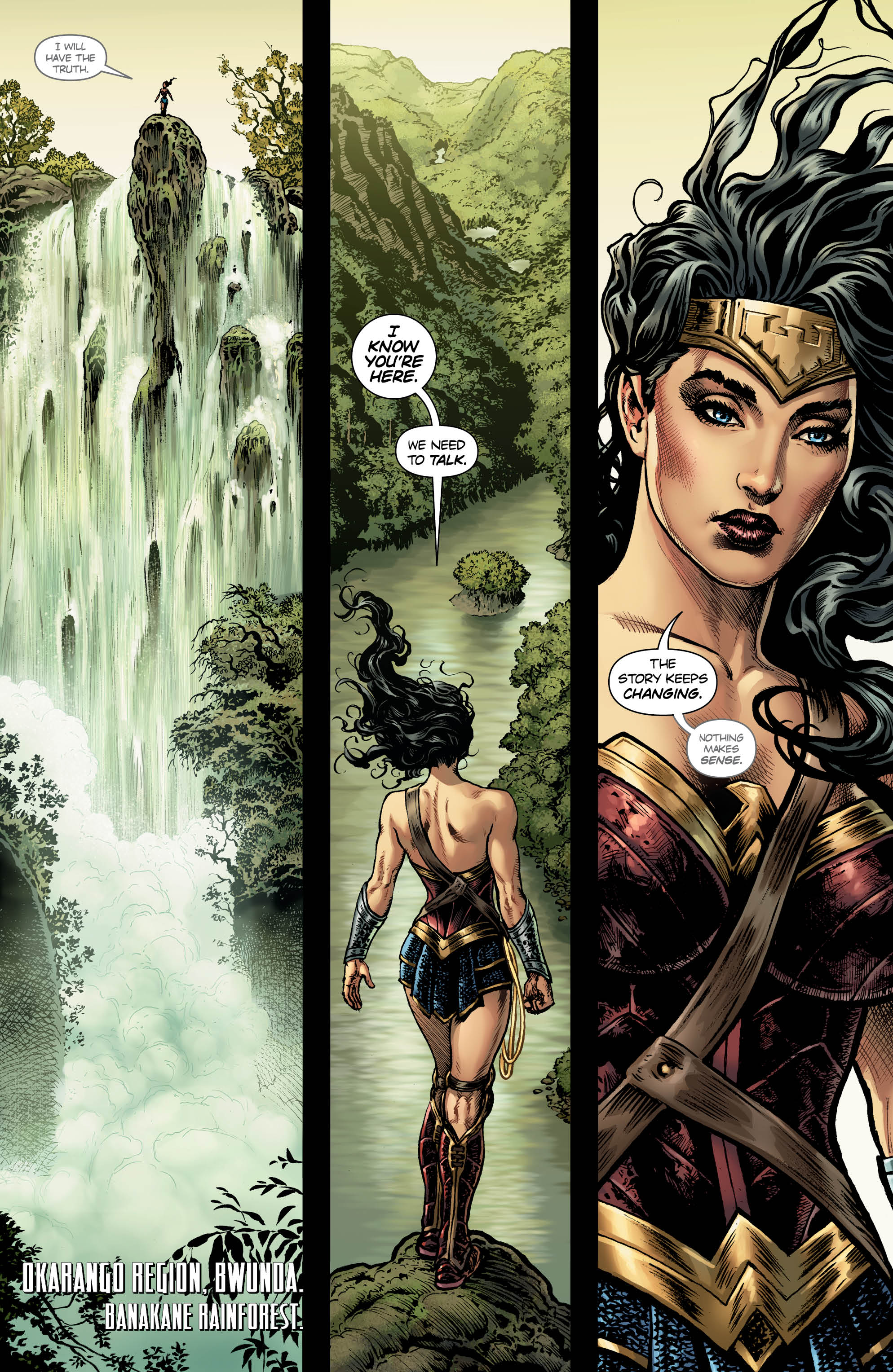
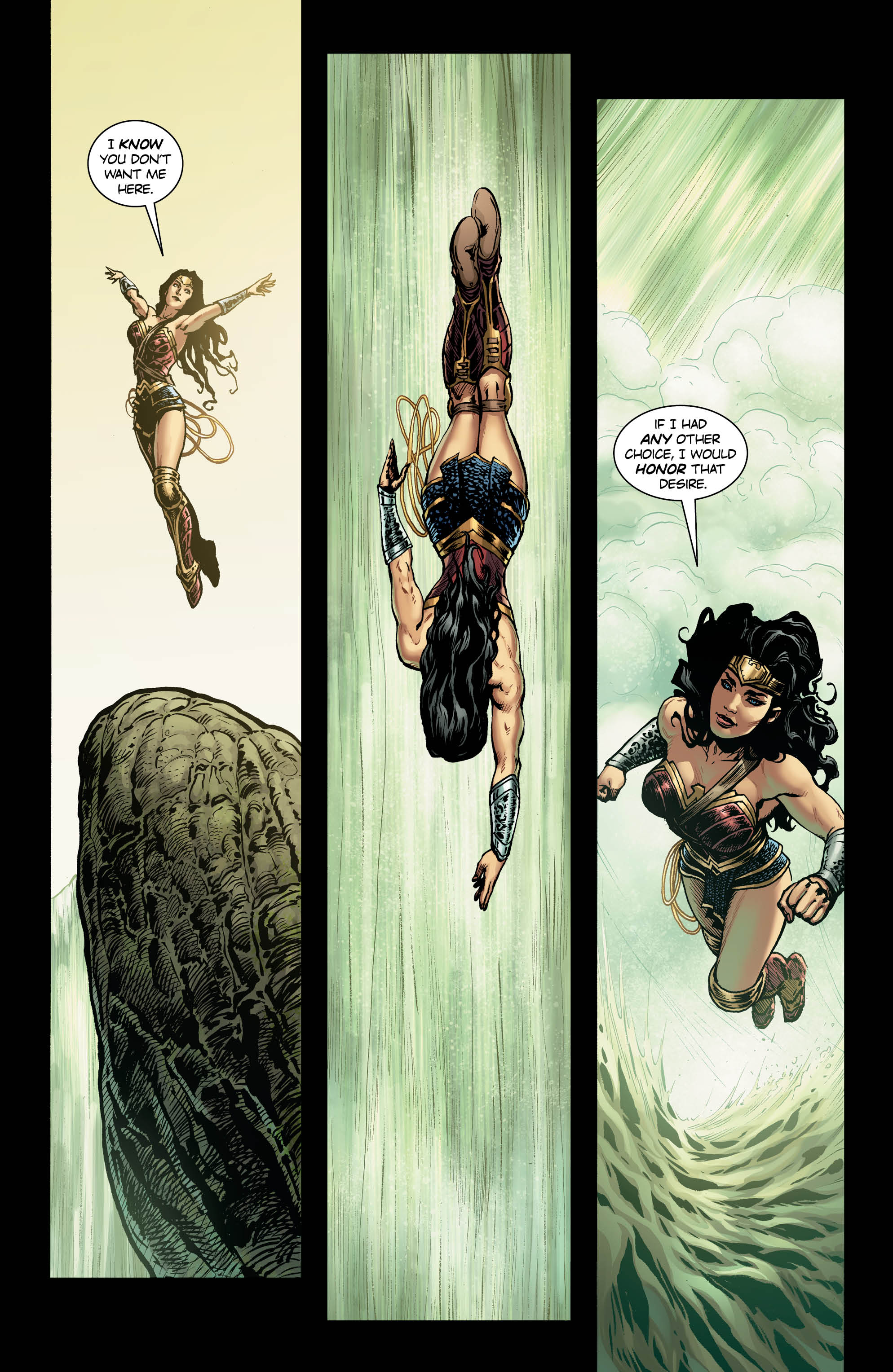
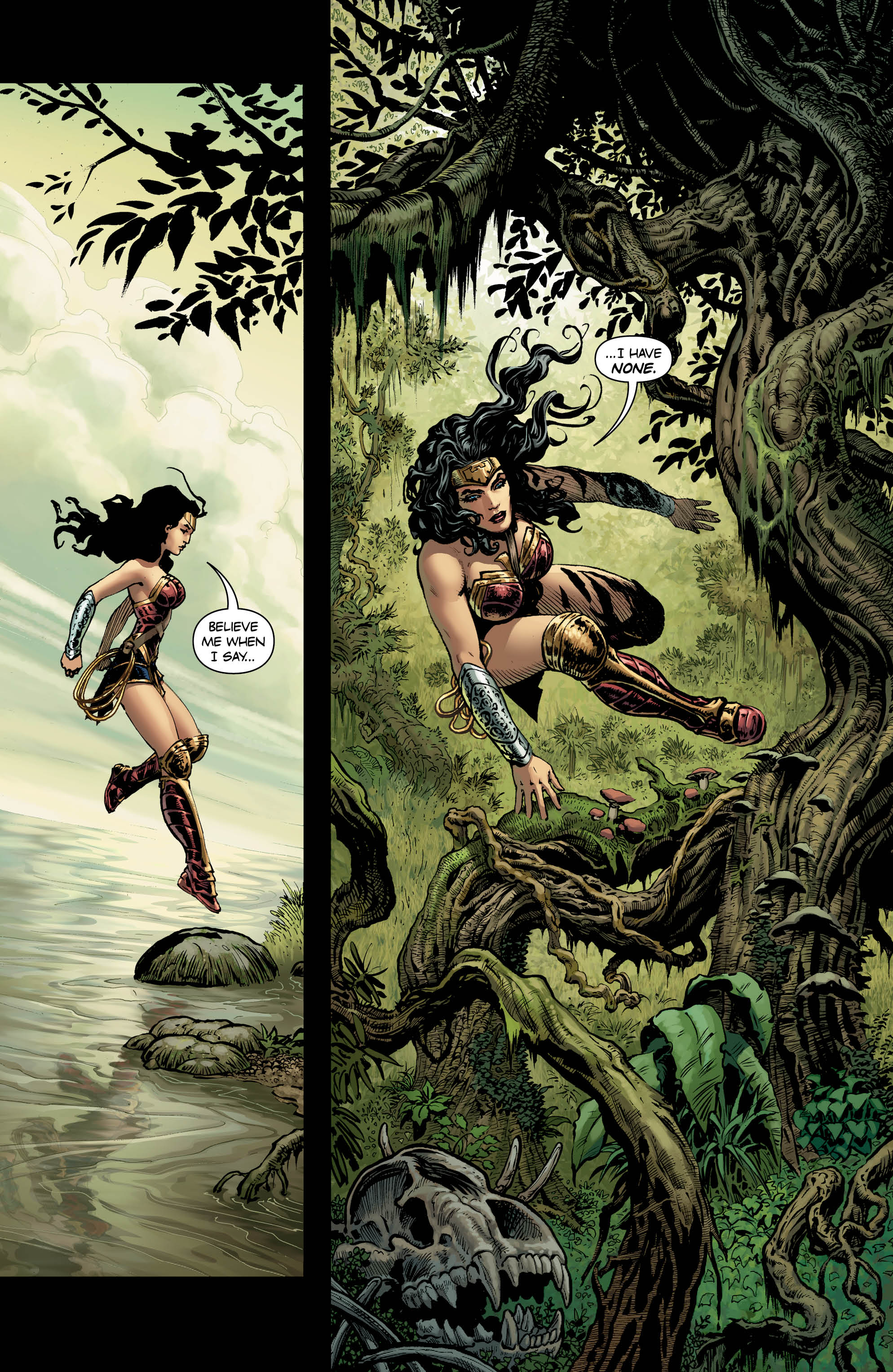
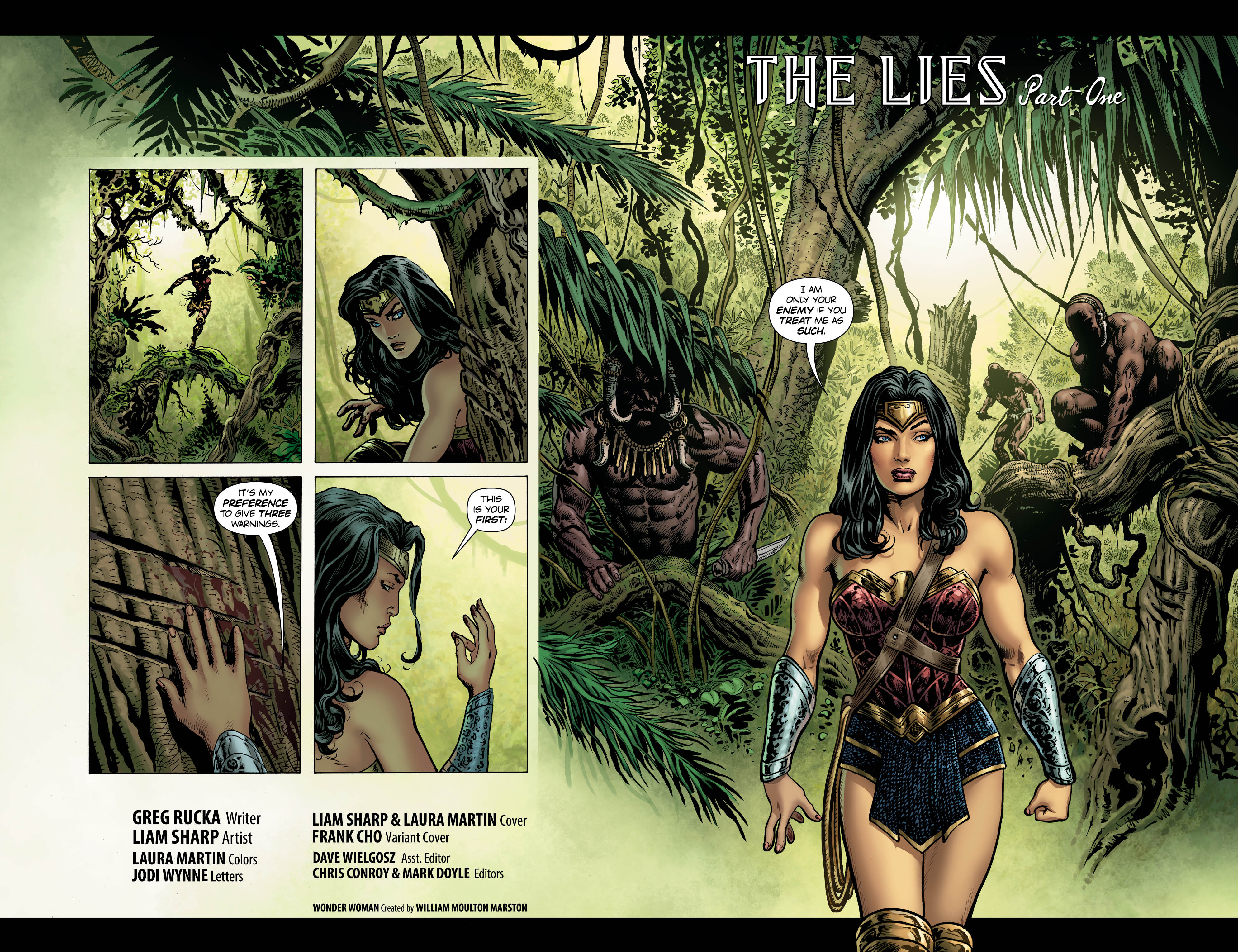
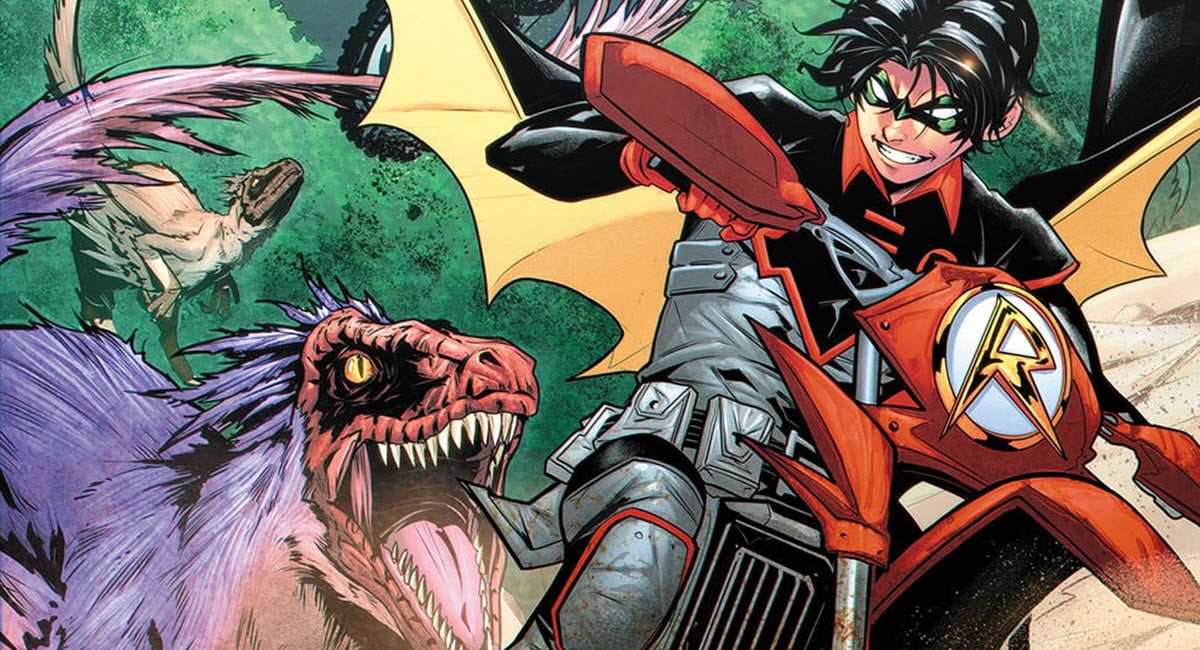
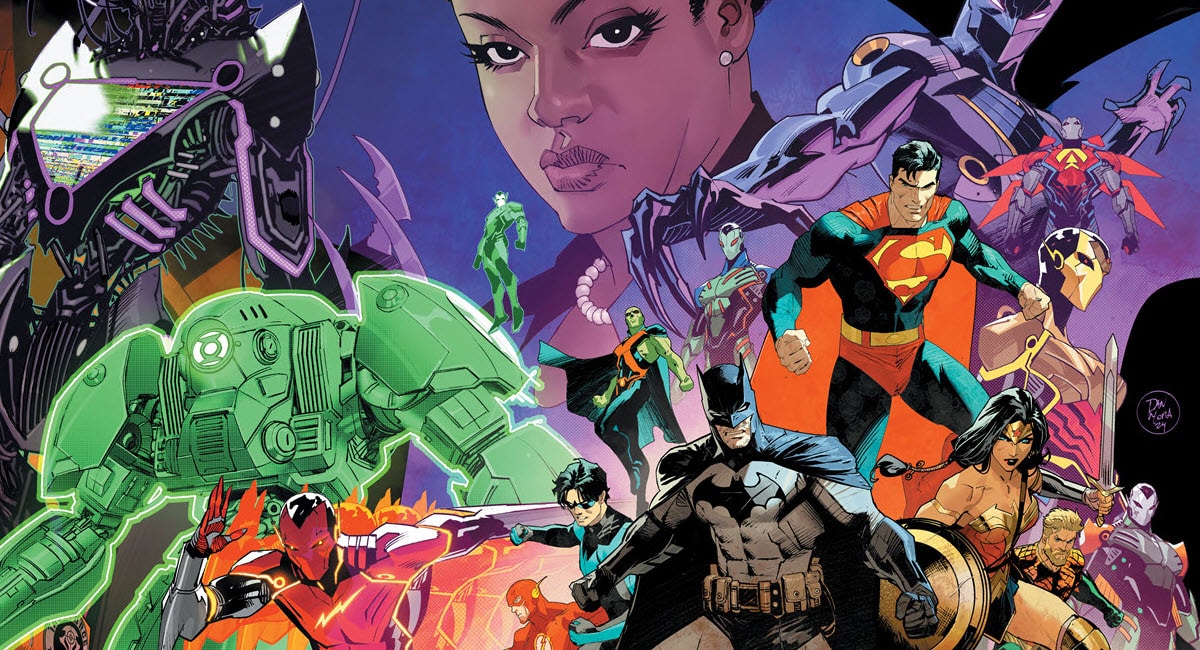
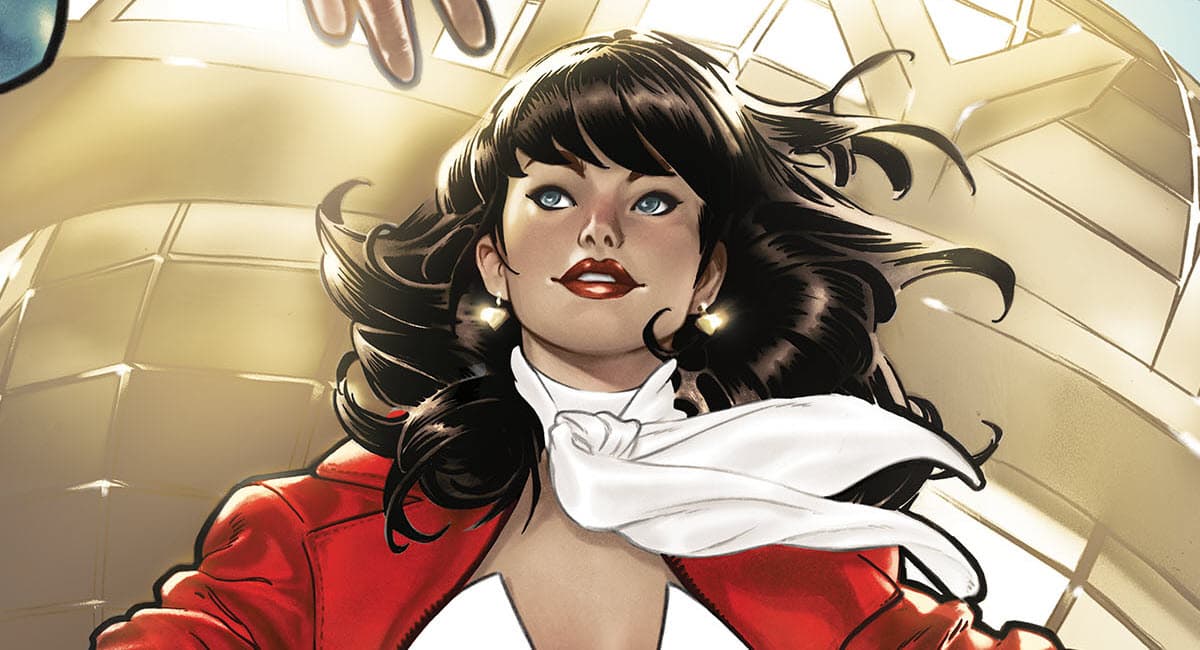



“Having been told to read Lazarus by multitudes of people who say it’s one of the best comics ever and failing to get past the second volume” – What?! It’s a dense book, and honestly hard to keep track of at times, but it’s an amazingly great book!
With that said, I was so unimpressed with the Wonder Woman Rebirth issue. The entire thing was just WW walking around saying “The story keeps changing.” 96 times. I was like “Wait, is this the same guy that’s writing Lazarus? Given his past with DC, did he take this book on as an inside joke to see how long it would take the upper management to notice?” I thought it was just badly written…. but maybe with this issue it gets better.
If you have no basis of her 75 years of history and iterations, maybe at least read some wikis before coming in clueless and “reviewing” a #1 issue? Is it really too much to ask that someone use the internet to inform his or herself before critiquing a new book about a really old character?
Thank you for your comment, London! I don’t know if this is necessarily the “best” argument, but I want to pose another question to your question: is it really expected for a new reader to do research before they jump on to a FIRST issue, regardless of how old the lead character of that series is? When I first started reading comics, I was hesitant to dive into anything too heavily based in continuity because I knew I wouldn’t understand it and it seemed strange to me that I should have to read through wikipedia summaries of 75 year histories before reading a single story. Compare that to a series of films or more aptly, TV Shows. Sure if you’re diving into season 6 of Game of Thrones you should know what happened in the previous five seasons before doing so, but that’s not how Wonder Woman #1 or other DC Rebirth books are being sold to us. They are being sold as starting points…hence number 1. If your START requires research, you have to ask: is this book really going to attract new readers?
Comments are closed.